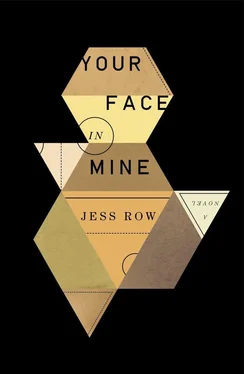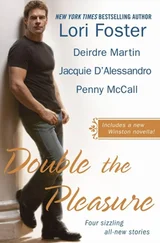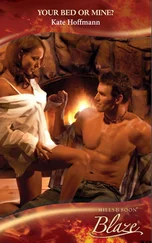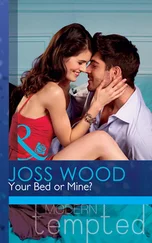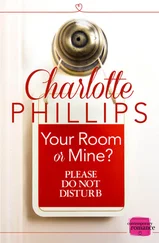And what about the music? What, you’re just embarrassed by it now? Just a passing phase?
Stop here for a second, he says, extracting his phone from his back pocket. Robin’s texting me.
We’ve crossed out of the park onto Wilbur Street, a long row of low-rise public housing units, single-family, built to look like Eighties condos — all angles and planes, brown metal sheathing and slabs of brick. Just about every building I can see, down to Pennsylvania Avenue, has that boxy Seventies-Eighties look, with the windows high up and long blank walls facing the street. Even the New Evergreen Baptist Church across the way is built in modernist-bunker style. Which means, of course, that they were all built after the riots, in place of the old ornate row houses and tenement houses and shop fronts burned or condemned as blight. A small banner strung up over the rear entrance to the church reads
EVERGREEN BAPTIST HEAD START
GETTING OUR KIDS
“FULLY READY”
FOR KINDERGARTEN
You know where we are, right? Martin says, thumbing away at the screen.
Yeah.
Two blocks that way is the Royal Theater site. And the new Billie Holiday statue.
The Old West Side is where we are. Baltimore’s Harlem. We took a Baltimore History elective in high school that included a tour along Pennsylvania Avenue — Thurgood Marshall’s birthplace, the churches and improvement societies and lodges where Du Bois, Marcus Garvey, Philip Randolph, and King once spoke. The Baltimore Masjid, the Ideal Savings and Loan. It was like visiting a parking lot and looking for a cathedral. A few of the original church buildings survived; the rest were just points on a map, now abandoned storefronts, Dollar Stores and Foot Lockers, without even historical markers, just handwritten notes from our guide, an elderly man from the Urban League who wore a fedora and walked with a cane.
If you weren’t from Baltimore, I’m thinking, and you arrived here, out of nowhere, you’d be utterly lost. Not a Target in sight, no supermarket, no ATM, no Dunkin’ Donuts. Not a food desert so much as a desert, period. No commercial signifiers, none of the reassurances of home. Pick a random block here, I’m thinking, or in Philly, or Detroit, Cleveland, Bridgeport, Milwaukee, St. Louis, any of the lost cities, the gutted and ruined cities, and you may be in the one place left in America with no solace left at all, not even the satisfaction of opening your wallet.
Let’s turn back, I say. Back to the park, okay? We’re not going anywhere in particular, are we?
• • •
I’m going to say something that’s going to break your heart, Martin says, after we’ve walked a few minutes in silence, crossing DeVine, circling the park’s southern edge. I tried to care. I really wanted to get into it. I mean, I could see it in your face, Kelly! I used to watch you almost crying when you played the drums, do you know that? You were transformed . I took home our practice tapes and listened again and again. What the hell was I missing? Well, I never got it. I liked being in a band. And it’s not like the bass parts were difficult. But I never drank the Kool-Aid. I never thought of it as art .
Well, okay. I don’t know if I’d call it art, either.
Don’t apologize, he says. Don’t do that. Look, Kelly, I’m not asking you to be ashamed. I’m not asking you to disown anything. It’s not your fault. There was nothing wrong with L’Arc-en-Ciel. There was nothing wrong with any of it. Look, it’s your own history, your being , for god’s sake! It just wasn’t mine .
As if a camera has just swung out in front of us on a boom, as if we’re being filmed for some documentary, I’m suddenly aware of what a picture we make: a black man and a white man, same age, side by side, close enough to imply a certain friendly intimacy. A conversation in low voices.
Define that. Define my being.
You know what my father said, the first time I played him one of our tapes? He said, Jesus Christ, it’s like you’re trying to invent music all over again. Without knowing how. And isn’t that true, just a little bit? What did Alan know about playing the guitar? A couple of chords and a lot of screwing around. What do you have to have, to pull that off? That special self-righteousness. That arrogance. That cocoon— that special Willow feeling, you know what I mean? — that sense of being the arbiter of all things. That, that transparency . That sense of living in a world of hypothetical questions. I could go on and on. What would it feel like to start a riot? You see what I mean?
And that’s your definition of whiteness?
Let’s put it a different way, he says. Why did you leave Baltimore, Kelly? I’ll tell you why. Because you felt you could. Right? You felt that freedom. Much as you loved it. There was nothing here for you. Why stay in a city that’s a ruin? A broken city, a looted and betrayed city, with all these vacants, all these empty lots, a city that bulldozes its beautiful theaters? Why stay, if you have the option of leaving? It’s a stupid rhetorical question. You left because you couldn’t stand looking at all those hopeless poor black people anymore.
What do you do when someone quotes you back to yourself, practically speaking, more or less, without knowing it? A little knot has lodged itself in my esophagus, enough to breathe, but not to speak, not for a minute.
And what about you? I manage to ask, finally.
What about me? He could go on talking like this for hours, I’m thinking, extemporizing this way. He’s leaning into it. I couldn’t leave, he says. Even when I had the chance. Drawn back like a homing pigeon. From wherever I happened to land. Even Bangkok. And I love Bangkok. But wherever else I was, I just felt eventually like the earth was going to swallow me up and bring me back here. I just had to go deeper and deeper into Baltimore. Bind myself to Baltimore. Hopeless and fucked-up as it was. But then I realized something, and it’s business school 101. One man’s vacant lot is another’s man’s gold mine. Absence and anonymity: that’s the twenty-first-century recipe for success. I was going to be a black man one way or another, but I wasn’t going to just up and disappear because my city’s off the map. Because, truthfully, the world is going to come to Baltimore one day. The world is Baltimore.
Hold on. I scrabble in my bag for my notebook. Let me write this one down, okay? I’ll have to use that line in the book.
He loosens his collar and glances at me sideways, as if we’ve become sparring partners and he’s waiting for an unexpected move.
I didn’t make that up, he says slowly. Alan did.
When was that? I never heard him say that.
Later. After you left. When Cheryl used to bug him about applying to college. He would say, I don’t need to go anywhere. The world is Baltimore.
I stare at him, my mind buzzing with the white noise of the traffic below, for a moment not quite digesting the words.
What, you mean, after he was back from rehab? When I was away at Amherst?
You thought we never saw each other, Kelly?
He never mentioned anything about it.
Maybe he was afraid to freak you out. He knew I was changing, that’s for sure. Changing into what , of course, is a different story. But he knew something was happening.
My chest has become a giant ticking clock, a wound spring releasing itself in tiny increments.
Where was this? At his house?
I don’t remember. Who cares? I saw him there; he came downtown; we had lunch together; we hung out in Fell’s Point a couple of times at night. He needed help. I tried to help. I took him to a methadone clinic. Hell, I took him to get an AIDS test. This really bothers you that much?
Читать дальше
